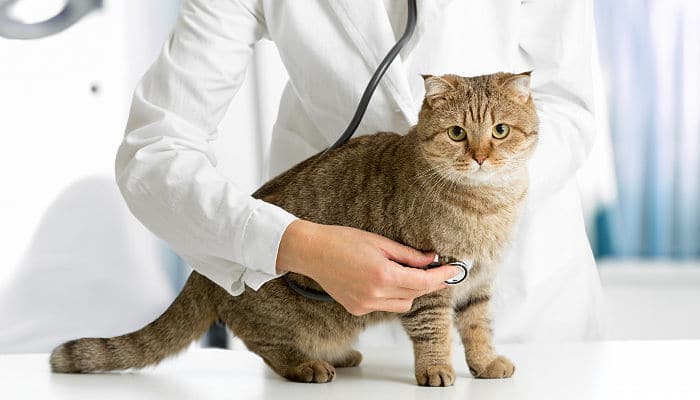 Mites are parasites that can affect the ears and health of your cat. They feed on skin debris and live inside the ear canal, infecting the ears of your pet.
Mites are parasites that can affect the ears and health of your cat. They feed on skin debris and live inside the ear canal, infecting the ears of your pet.
You have to eliminate them quickly to avoid health problems. It usually occurs in all felines, with no difference between sexes, and more in long-haired breeds such as Persian or Himalayan. It is more common in puppies since they still have not developed all the antibodies to keep their immune system in the best conditions.
Mites cause irritation and burning so your cat will scratch its nails and most likely your ears will swell and your skin will be irritated. But how do you know if you have mites, how to see those microscopic parasites that live in the darkness of your ear?
- You have to look at the amount of wax it secretes and if it is dark and smelly; this indicates that you have a health problem.
- It is necessary to observe its head movement, if it shakes it a lot or scratches the ear with its hind leg it can indicate that something bothers it and, in addition, it can provoke other problems like blisters with blood before the strong and continuous scratching.
- And, also, if you often tilt your head to one side it can be the symptom that your ear hurts, whether from mites or for other reasons.
In these cases, you should take it to the veterinarian to examine it and after the diagnosis can put the appropriate treatment.
Treatment to Eliminate Mites From Your Cat’s Ears
The veterinarian is in charge of giving you the necessary medication for the treatment of mites in your pet’s ears. If the eardrum of the cat is well, you can administer the appropriate drops to kill the mites and free your beloved pet of these annoying parasites and the infection produced by them. Generally, the treatment by drops lasts between one week and ten days, the veterinarian will indicate the frequency of application and the number of drops in each shot.
Before throwing the corresponding drops it is very likely that you should clean the ears of your cat since excessive wax can protect the mites from contact with the drops. In Tiendanimal we have a wide catalog of products for the hygiene and the care of the ears of these animals, cleansers of simple use to help to maintain the health of the ears of your cat.
When it comes to administering medicine, it is important that you have everything you need at hand. A large towel to avoid staining the surface and so that the cat does not slip will be of great help, just like a friend who takes care of holding your pet while you apply the drops.
To throw the drops, put your cat facing you lying on a flat surface and apply the drops that you have indicated the veterinarian. Next, gently massage your pet’s ear to help it enter and slip to the inside. And, finally, take some cotton to clean the residues that have been on the surface of the ear.
Tips To Keep Mites From Getting Into Your Cat’s Ears
Although mites have a treatment and a simple solution, it is better to prevent than to cure. Therefore, keep in mind these little tricks to prevent your cat’s ears from becoming infected with mites:
- Use an effective antiparasitic. There are medicines, such as selamectin that helps prevent the infestation of mites and other types of parasites: fleas, heartworms … It is applied to the back of the cat’s neck and will prevent the development of new parasites.
- Protect the legs of the cat with fipronil. The fipronil effectively fights the ticks, lice, fleas and other parasites that the cat has. In this way, if your cat scratches its ears with its legs, it will prevent new mite infestations.
- Keep a clean environment Use environmental insecticides to fight fleas and other parasites and avoid a new infestation.
- Help your cat to have a stronger immune system. The infestations also attack the immune system, therefore, so that you can deal with other infestations by some type of parasite, it is important that your immune system is strong. Offer a healthy and quality diet that covers all your needs.
- Take your pet to the vet. Make the appropriate visits to the specialist to keep track of the state of health of your cat and, before some of the symptoms described above, take it to your consultation so that you can put the appropriate treatment.
Has your cat ever had mites? How did you solve it? Do you often clean your ears and keep your hygiene in good condition?
Contributed by wellmaderemedies.com/







